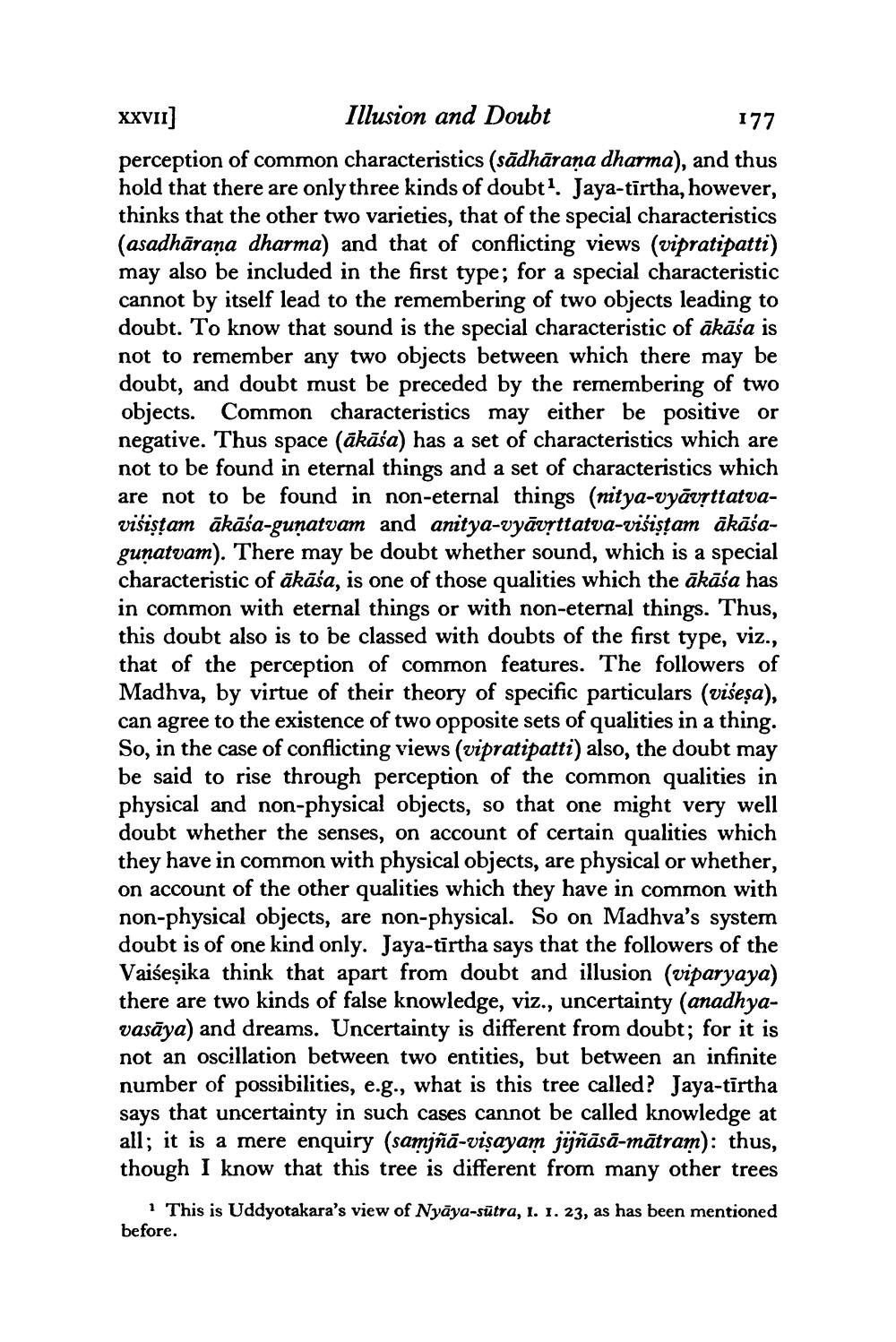________________
XXVII] Illusion and Doubt
177 perception of common characteristics (sādhārana dharma), and thus hold that there are only three kinds of doubt!. Jaya-tīrtha, however, thinks that the other two varieties, that of the special characteristics (asadhārana dharma) and that of conflicting views (vipratipatti) may also be included in the first type; for a special characteristic cannot by itself lead to the remembering of two objects leading to doubt. To know that sound is the special characteristic of ākāśa is not to remember any two objects between which there may be doubt, and doubt must be preceded by the remembering of two objects. Common characteristics may either be positive or negative. Thus space (ākāša) has a set of characteristics which are not to be found in eternal things and a set of characteristics which are not to be found in non-eternal things (nitya-vyāvịttatvavišistam ākāša-gunatvam and anitya-vyāvrttatva-višistam ākāšagunatvam). There may be doubt whether sound, which is a special characteristic of ākāśa, is one of those qualities which the ākāśa has in common with eternal things or with non-eternal things. Thus, this doubt also is to be classed with doubts of the first type, viz., that of the perception of common features. The followers of Madhva, by virtue of their theory of specific particulars (višeşa), can agree to the existence of two opposite sets of qualities in a thing. So, in the case of conflicting views (vipratipatti) also, the doubt may be said to rise through perception of the common qualities in physical and non-physical objects, so that one might very well doubt whether the senses, on account of certain qualities which they have in common with physical objects, are physical or whether, on account of the other qualities which they have in common with non-physical objects, are non-physical. So on Madhva's system doubt is of one kind only. Jaya-tīrtha says that the followers of the Vaiseșika think that apart from doubt and illusion (viparyaya) there are two kinds of false knowledge, viz., uncertainty (anadhyavasāya) and dreams. Uncertainty is different from doubt; for it is not an oscillation between two entities, but between an infinite number of possibilities, e.g., what is this tree called? Jaya-tīrtha says that uncertainty in such cases cannot be called knowledge at all; it is a mere enquiry (samjñā-visayam jijñāsā-mātram): thus, though I know that this tree is different from many other trees
1 This is Uddyotakara's view of Nyāya-sutra, 1. 1. 23, as has been mentioned before.




